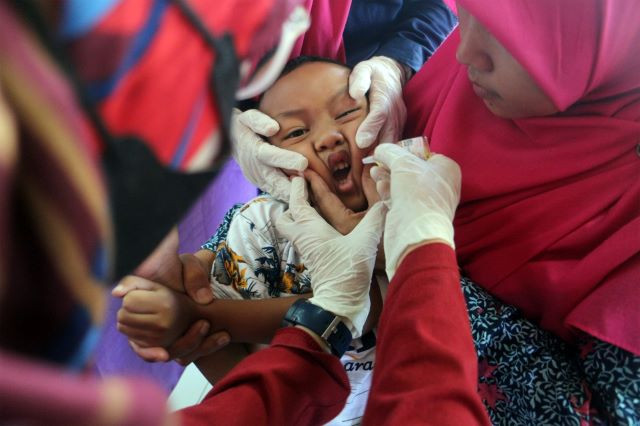Popular Reads
Top Results
Can't find what you're looking for?
View all search resultsPopular Reads
Top Results
Can't find what you're looking for?
View all search resultsKeeping the hope for health alive
Without peace, there is no health, and without health there can be no peace.
Change text size
Gift Premium Articles
to Anyone
Without doubt 2023 was a year of milestones and challenges in global public health.
In May, I declared an end to COVID-19 as a public health emergency of international concern.
This marked a turning point for the world following three years of crisis, pain and loss for people everywhere.
I am glad to see that life has returned to normal.
The World Health Organization (WHO) also announced the M-POX outbreak no longer represented a global health emergency.
And we approved new vaccines for malaria, dengue and meningitis, diseases that threaten millions around the world, mainly the most vulnerable.
Azerbaijan, Tajikistan and Belize were declared malaria free, and a range of neglected tropical diseases were eliminated in multiple countries, including sleeping sickness in Ghana, trachoma in Benin, Mali and Iraq, and lymphatic filariasis in Bangladesh and Lao.
The path to eradicating another vaccine-preventable disease – polio – has reached its last mile.
Thirty more countries introduced the HPV vaccine as the world advances toward eliminating cervical cancer.
The need to address the health impacts of the climate crisis were elevated to the highest political levels, with governments, scientists and advocates putting health, for the first time, prominently on the COP28 climate conference agenda, and issuing a global declaration on climate and health.
Heads of state at the United Nations General Assembly committed to advance universal health coverage, end tuberculosis and protect the world from future pandemics.
Each of these achievements, and many more, demonstrated the power of science, solutions and solidarity to protect and promote health.
But 2023 has also been a year of immense and avoidable suffering and threats to health.
The barbaric attacks by Hamas on Israel on Oct. 7 left around 1,300 people dead and over 200 taken hostage. Reports of gender-based violence and mistreatment of hostages are deplorable.
This was followed by the unleashing of a devastating attack on Gaza, which has killed more than 20,000 people – mainly women and children – and injured over 53,000.
At the same time, hospitals and health workers have been repeatedly attacked, while relief efforts are not coming close to meeting the needs of people.
As of Dec. 22, only nine of 36 health facilities in Gaza were partially functional, with only four offering the most basic of services in the north.
For this reason, we call again for an immediate cease-fire.
War and armed hostilities, sadly, have plagued too many other locations around the world, including Sudan, Ukraine, Ethiopia and Myanmar, to name but a few.
I saw first-hand the suffering of war-weary people in North-West Syria who, like communities I also visited in neighboring Turkey, were devastated by the terrible earthquake in February.
Without peace, there is no health, and without health there can be no peace.
Insecurity, poverty and lack of access to clean water and hygiene fanned the spread of infectious diseases in many countries.
The resurgence of cholera is especially concerning, with a record number of 40-plus outbreaks around the world.
And in terms of emergency preparedness and response, gaps remain in the world’s readiness to prevent the next pandemic.
But 2024 offers a unique opportunity to address these gaps.
Governments are negotiating the first-ever global agreement to protect communities, countries and the world from the threat posed by pandemics.
The Pandemic Accord is being designed to bridge the gaps in global collaboration, cooperation and equity.
The accord, and plans to strengthen the International Health Regulations, represent monumental actions by governments to create a safer and healthier world.
And as WHO closes out our 75th year as the “world’s” health organization, I extend by my sincere gratitude to health workers, partners, and WHO colleagues, on our shared journey to achieve Health for All.
Lastly, during this holiday season, I am sure that everyone will join me in hoping that the New Year will bring peace, health and prosperity for all people around the world.
***
The writer is director-general of World Health Organization.











